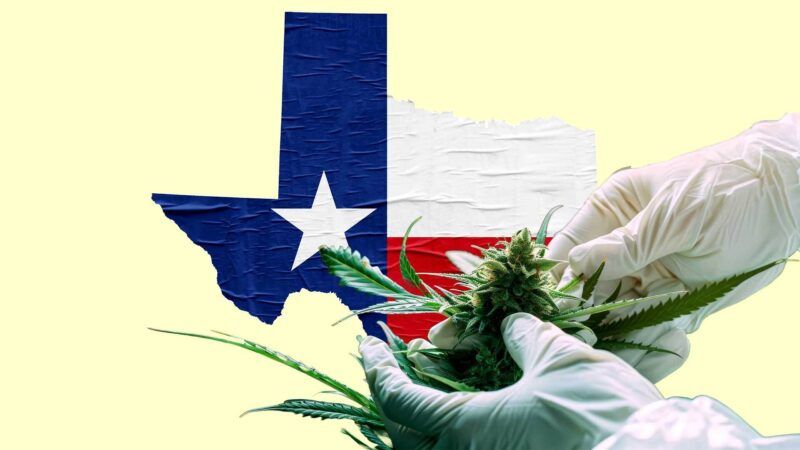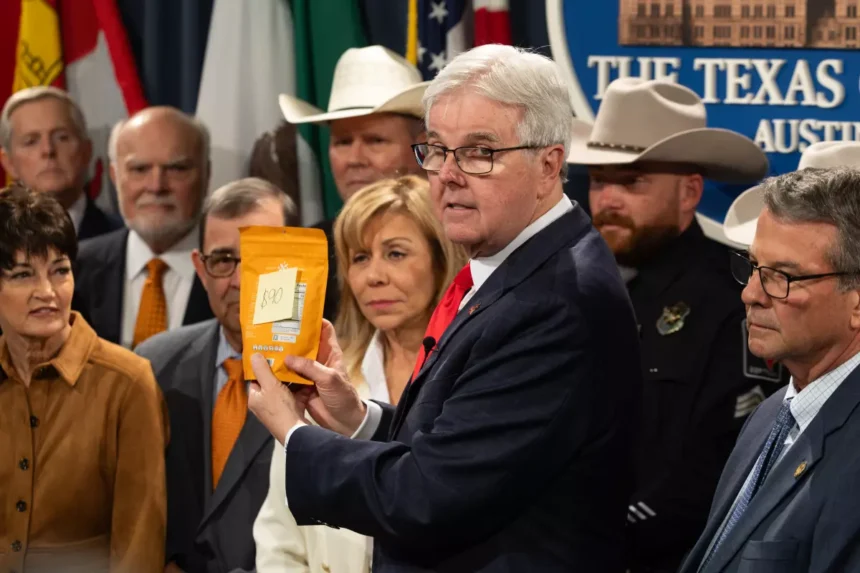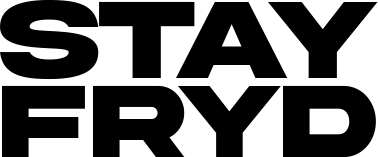Texas Officially Bans All THC Products in 2025
In a sweeping move that’s sending shockwaves through the hemp and cannabis industries, Texas has officially banned all THC-containing products, including Delta-8, Delta-9, and even trace amounts of THC found in full-spectrum CBD.
This unprecedented legislation, signed into law in May 2025, makes Texas one of the most restrictive states in the U.S. when it comes to cannabinoid regulation — impacting businesses, patients, and consumers statewide.
Lt. Gov. is criticizing media coverage of SB 3, banning THC. @JeremySWallace asked about adults wanting to use products, and Gov. Patrick called it a “stupid” question. #txlege https://t.co/i7h5YFX5Wb pic.twitter.com/qtnJZzzwnO
— Michael Adkison (@madkisonews) May 28, 2025
What Does the Texas THC Ban Include?
The law effectively prohibits the manufacture, sale, possession, and distribution of any product that contains any form or isomer of tetrahydrocannabinol (THC), including:
- Delta-8 THC
- Delta-9 THC (even hemp-derived under 0.3%)
- Delta-10, THC-O, HHC, and other synthetic cannabinoids
- Full-spectrum CBD products with trace THC
Even CBD oils and edibles that previously met the federal Farm Bill’s 0.3% THC threshold are now banned if sold or distributed in Texas.
Why Did Texas Ban THC Products?
According to state lawmakers, the motivation behind the THC ban is tied to:
- Concerns about public health and youth access
- Unregulated Delta-8 and synthetic THC markets
- Pressure from law enforcement and conservative advocacy groups
However, critics argue that the move:
- Hurts small hemp businesses and farmers
- Cuts off patients from therapeutic access
- Forces consumers into black-market alternatives
What Are the Penalties?
The new law reclassifies THC products under controlled substances, meaning:
- Possession of THC products can result in misdemeanor or felony charges
- Retailers and producers may face fines, license revocations, or criminal charges
- Online sales into Texas are also restricted or blocked
How This Impacts CBD and Hemp Businesses
Texas previously had a booming hemp-derived THC market, with Delta-8 products legally filling shelves across gas stations, smoke shops, and online retailers. That entire sector is now in jeopardy.
Business owners are scrambling to pivot:
- ❌ Closing retail locations
- 🔄 Switching to CBD isolate products
- 🚚 Relocating operations out of state
Some are even preparing legal challenges, arguing the state is violating federal hemp protections under the 2018 Farm Bill.
What About Medical Marijuana in Texas?

Texas has a very limited medical marijuana program, allowing low-THC cannabis (less than 1%) for a few qualifying conditions. However, the new law does not expand access — and may further restrict what little access exists.
Patients relying on Delta-8 or full-spectrum CBD for conditions like PTSD, anxiety, or chronic pain may now be left with no legal options.
What Should Texas Consumers Do Now?
If you’re in Texas and use THC products, here’s what you need to know:
- ✅ Dispose of banned products safely
- 🚫 Do not attempt to order online from out-of-state suppliers
- 🧠 Stay informed about legal updates and possible reversals
- 💬 Support legal reform efforts and advocacy groups
Final Thoughts: What’s Next?
The Texas THC ban marks a dramatic turn in the state’s cannabis policy. While lawmakers claim it’s a step toward regulation and safety, the fallout could mean:
- Thousands of jobs lost
- Consumers turning to unregulated or illicit sources
- A growing gap between federal and state cannabis laws
If you care about cannabis access and reform, now is the time to get involved, stay informed, and support organisations fighting for cannabis freedom in Texas. Stay tuned as we will be keeping an eye on this situation.






